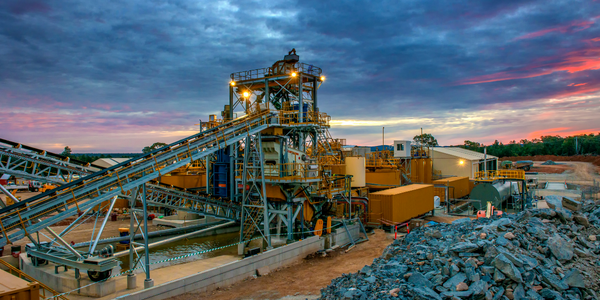Transport Flight Centre
Customer Company Size
Large Corporate
Region
- Africa
Country
- South Africa
Product
- AppSense DesktopNow
- AppSense Environment Manager
- AppSense Application Manager
- AppSense Performance Manager
Tech Stack
- User Environment Management (UEM)
- Centralized Computing Environment
- Profile Management
Implementation Scale
- Enterprise-wide Deployment
Impact Metrics
- Productivity Improvements
- Customer Satisfaction
- Cost Savings
Technology Category
- Platform as a Service (PaaS) - Device Management Platforms
- Application Infrastructure & Middleware - Data Exchange & Integration
- Application Infrastructure & Middleware - Database Management & Storage
Applicable Functions
- Business Operation
- Facility Management
Use Cases
- Remote Asset Management
- Remote Control
- Predictive Maintenance
Services
- System Integration
- Software Design & Engineering Services
About The Customer
With over 160 locations in South Africa and nearly 2,500 offices worldwide, Flight Centre is one of the world’s leading tailor-made travel companies, focused on providing expertise on airfares and land packages. The company takes great pride in offering fantastic deals with every major airline and access to rooms in tens of thousands of hotels, all in an effort to create the perfect travel experiences around the world. One of the most important factors that distinguishes Flight Centre’s travel consultants from those at other companies is their experience and passion for travel, which means they go further for their customers and give them value that’s unbeatable. In addition, all of the company’s consultants undergo regular training with an intensive focus on airfare and product specialization. Flight Centre’s consultants work in small teams and have complete ownership to provide customers with unsurpassed levels of service and expertise. Typically a Flight Centre store will provide travel arrangements for local businesses as well as for local leisure customers. The company also has Flight Centre Business Travel to provide the same high level of service with a focus on the needs of small-to medium-sized business travel requirements. Among its many accolades, Flight Centre has been voted the Deloitte Best Company to Work For in the Travel and Tourism sector for 10 years running.
The Challenge
Every office throughout the Flight Centre network in South Africa is made up of dedicated individuals, allowing them to provide highly personalized service in accommodating the travel preferences of their customers. As part of this effort, these individuals regularly travel between offices to lend their expertise and support one another with customer service needs. Moving between offices often created problems for employees since Flight Centre South Africa’s computing network was decentralized with dedicated servers and printers in each office. This disparate computing environment meant that a person going from one office to another had difficulties accessing their user profiles and local printers. To make matters more frustrating for users, logon and logoff times were 40-50 seconds, and any settings from a previous session were not saved. Corrupt user profiles were also an issue, requiring 20-30 minutes per instance to resolve. These issues all contributed to lost productivity among the workforce and a knock on effect to their customer service. Another issue with the decentralized server environment was the time and effort required to launch new applications throughout the network, since each server had to be configured individually. It was ultimately this challenge that led the IT team for Flight Centre South Africa to consider AppSense as they were facing the rollout of a new travel application.
The Solution
Fortunately, Smit’s counterparts in the New Zealand region of Flight Centre had already implemented AppSense, which makes IT more efficient and productive while empowering users to work the way they want and where they want. Smit and his team installed the AppSense DesktopNow to centrally manage all desktops, the products of which include: AppSense Environment Manager - the only solution that manages the most complex and diverse combinations of users, apps, and data across enterprise desktop environments, providing precise user control with a powerful user-based policy and personalization engine that delivers user and application settings on-demand to any desktop, on any device based on the context of the user, location, time, device and many other granular options. AppSense Application Manager - giving IT teams full control, application entitlements can be defined on a per-user basis based on factors such as location, device name, IP address, firewall settings, even time of day. Only trusted applications installed by administrators are allowed to execute, while user-introduced applications are prevented from launching by default. AppSense Performance Manager - allowing IT to govern resource allocation across all application and desktop delivery mechanisms for optimal performance, no matter where their end-point devices and applications are hosted. The implementation of AppSense created immediate benefits for Flight Centre South Africa travel consultants by allowing them to work seamlessly within any office by delivering a consistent user profile every time they logon to the system regardless of location, which was accomplished by centrally managing user policy and personalization settings. This capability extended to the use of local printers, which were configured within each profile - alleviating user frustration and eliminating what had previously been a drain on IT resources for support. AppSense also positively impacted productivity by improving logon and logoff times by more than half, and now when a user logs on to their desktop environment the settings are saved from the previous session. Corrupt user profiles are also much easier to support and require less time thanks to the solution’s rollback feature.
Operational Impact
Quantitative Benefit

Case Study missing?
Start adding your own!
Register with your work email and create a new case study profile for your business.
Related Case Studies.

Case Study
Remote Monitoring & Predictive Maintenance App for a Solar Energy System
The maintenance & tracking of various modules was an overhead for the customer due to the huge labor costs involved. Being an advanced solar solutions provider, they wanted to ensure early detection of issues and provide the best-in-class customer experience. Hence they wanted to automate the whole process.
.png)
Case Study
Improving Vending Machine Profitability with the Internet of Things (IoT)
The vending industry is undergoing a sea change, taking advantage of new technologies to go beyond just delivering snacks to creating a new retail location. Intelligent vending machines can be found in many public locations as well as company facilities, selling different types of goods and services, including even computer accessories, gold bars, tickets, and office supplies. With increasing sophistication, they may also provide time- and location-based data pertaining to sales, inventory, and customer preferences. But at the end of the day, vending machine operators know greater profitability is driven by higher sales and lower operating costs.

Case Study
Goldcorp: Internet of Things Enables the Mine of the Future
Goldcorp is committed to responsible mining practices and maintaining maximum safety for its workers. At the same time, the firm is constantly exploring ways to improve the efficiency of its operations, extend the life of its assets, and control costs. Goldcorp needed technology that can maximize production efficiency by tracking all mining operations, keep employees safe with remote operations and monitoring of hazardous work areas and control production costs through better asset and site management.

Case Study
Predictive Maintenance for Industrial Chillers
For global leaders in the industrial chiller manufacturing, reliability of the entire production process is of the utmost importance. Chillers are refrigeration systems that produce ice water to provide cooling for a process or industrial application. One of those leaders sought a way to respond to asset performance issues, even before they occur. The intelligence to guarantee maximum reliability of cooling devices is embedded (pre-alarming). A pre-alarming phase means that the cooling device still works, but symptoms may appear, telling manufacturers that a failure is likely to occur in the near future. Chillers who are not internet connected at that moment, provide little insight in this pre-alarming phase.




